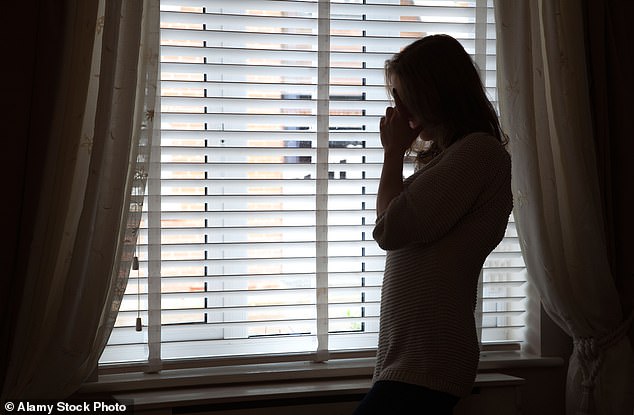Hundreds of thousands of people are turning away from NHS mental health “talk therapy” because, in many cases, they believe it is not working, experts have warned.
Each year, more than a million people are referred for this treatment, which aims to help patients deal with common mental problems such as anxiety and depression.
While many patients visit a mental health doctor in person, an increasing number of therapy sessions are taking place over the phone and even in the form of text conversations.
Last year, more than 600,000 NHS sessions were held via a chat app. This relatively novel form of care has been backed by the Government as a possible solution to getting thousands of people with mental health problems back to work.
Official figures have revealed that two-thirds of people claiming disability benefits are not employed due to mental health problems and, between 2022 and 2023, it was cited around 870,000 times in applications.
One in ten young people in the UK are unable to work due to illness, mainly related to mental health problems. Studies suggest that a third of people between the ages of 18 and 24 suffer from depression, anxiety or bipolar disorder.

More than a million people are referred to mental health treatment each year, but thousands drop out because they feel it is not working (file photo)
In his autumn statement, Chancellor Jeremy Hunt announced plans to expand the use of so-called digital talking therapies to help tens of thousands more people in England access the help they need to get back to work.
But damning figures from NHS England suggest that more than 40 per cent of those referred drop out before completing the course.
Of the 1.2 million NHS talking therapy referrals between April 2022 and March 2023, only 672,193 completed a full course. Among young adolescents, the dropout rate was even higher: more than 60 percent.
NHS England insists that half of those who completed psychotherapy treatment made a full recovery.
But leading mental health experts say there is no good evidence that this is true, as there is little or no follow-up to see if patients later relapse.
“The system is failing patients,” says Dr Elizabeth Cotton, associate professor at the University of Leicester and author of a forthcoming book titled UberTherapy: The New Business Of Mental Health. ‘(NHS talk therapy) has been downgraded to a highly standardized model focused on short-term solutions.
‘This is often self-guided online support without the involvement of a doctor. There is pressure on services to show 50 per cent recovery rates and discharge clients as soon as they indicate an improvement in their mood.
“Given the quality of many therapists working in the NHS, some patients may benefit but others may feel cheated and their mental health may worsen further.”
Around eight per cent of people in the UK suffer from depression or anxiety. One in ten will experience depression at some point.
Patients who wish to undergo talk therapy are referred by a GP or, in some areas, can access the services directly.
Most of these therapists offer a form of treatment known as cognitive behavioral therapy (CBT), which encourages people to change the way they think and behave to manage negative thoughts.
Studies suggest that CBT is effective in combating anxiety and depression, although it typically works best when combined with other treatments such as antidepressants.
The same goes for CBT delivered over the phone or through a messaging app.
However, experts say the problem with the NHS system is that patients cannot choose what type of therapy they would like to receive, meaning many receive care that does not suit them. This lack of choice is largely due to the significant increase in the number of NHS mental health patients over the last two decades.


Around eight per cent of people in the UK suffer from depression or anxiety and up to one in ten will experience depression at some point (file photo)
Since 2000, the number of cases of common mental health disorders, such as anxiety and depression, has increased by a third.
Experts say this has put intense pressure on mental health services, severely limiting treatment options.
“Many people can benefit from online chat therapy, and some even prefer not to be seen face to face,” says Dr Dean Eggitt, a GP in Doncaster.
‘But patients are not offered a variety of therapy options. In my area, you pretty much only get phone therapy or group sessions, and you usually don’t get a say in which one you get.
This is because NHS resources are limited, so there is no option to offer face-to-face therapy. So it’s not surprising that so many people drop out because the type of therapy…isn’t right for them.’
Figures suggest an increasing number of Britons are turning to private therapy. Around 400,000 people pay for therapy. These sessions usually cost between £50 and £100 per session.
Demand has grown so much that data now suggests that around half of private therapists are not accepting new patients.
Last year, a group of mental health specialists, called the Campaign for Universal Access to Counseling and Psychotherapy, launched a petition calling on the Government to reconsider the use of digital therapy and allow more NHS patients to see counsellors.
“NHS talking therapies have an exceptionally high drop-out rate and very low follow-up,” the group claims. “It does not respond to the needs of patients.”
An NHS spokesperson said: “The world-leading NHS Speech Therapy Service treated 1.2 million people for common mental health problems last year (almost nine in ten patients received support within six weeks) and Thousands more people recovered from anxiety and depression compared to the previous year.”

